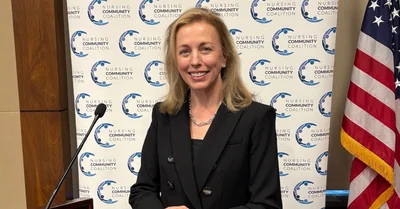The U.S. Environmental Protection Agency (EPA) Region 7 has announced that the Iola Unified School District #257 in Iola, Kansas, will receive nearly $690,000 through the EPA’s 2023 Clean School Bus Rebate program. The funds will be used to purchase two electric school buses and install charging infrastructure.
The initiative aims to help Kansas transition to zero-emission vehicles and replace existing school buses linked to asthma and other health conditions affecting students and communities.
“By investing in zero-emission school buses, we are not only improving air quality but also prioritizing the health and safety of our nation’s children,” said EPA Region 7 Air and Radiation Division Director Dana Skelley. “This grant, made available by the Bipartisan Infrastructure Law, takes significant steps toward a cleaner environment for today’s students and future generations.”
Iola Unified School District Operations Director Aaron Cole expressed enthusiasm about the new additions: “USD 257 is happy to welcome two EV buses to our transportation fleet. This grant will help to diversify our bus fleet and bring new technology to Iola schools.”
In September 2023, the EPA announced at least $500 million for its 2023 Clean School Bus rebates. The application period closed in February 2024 with high interest from school districts nationwide seeking electric and clean school buses. Due to overwhelming demand, including from low-income communities, Tribal Nations, and U.S. territories, the EPA doubled the funding to nearly $1 billion.
This funding round builds on previous investments of nearly $2 billion via 2022 rebates and 2023 grants aimed at improving air quality around schools, reducing greenhouse gas pollution contributing to climate change, and advancing America's leadership in clean vehicle development.
The Clean School Bus program was established under President Biden’s Bipartisan Infrastructure Law, providing $5 billion for transforming the nation’s school bus fleet. It supports electric buses with zero tailpipe emissions as well as propane and compressed natural gas (CNG) buses with lower emissions than current models.
The program seeks to reduce greenhouse gas emissions, save money for school districts, and improve air quality. Diesel pollution is associated with asthma and other health issues causing students to miss school more frequently in affected areas. Phasing out older bus engines aims to ensure cleaner air for students, drivers, staff near loading areas, and communities along bus routes.
Reducing greenhouse gas emissions from these replacements addresses the transportation sector's significant role in climate change while helping schools upgrade their fleets cost-effectively.
###





